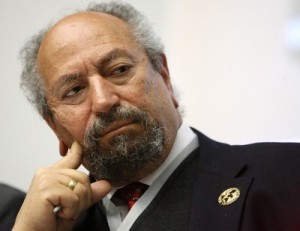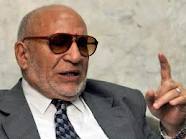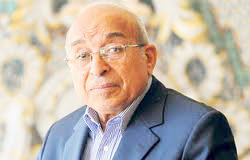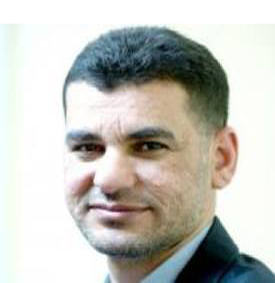Egyptian columnists are prolonging their analysis of the recent attacks on the Sinai peninsula, floating theories and pointing fingers. The Government and President Mohamed Morsy also come in for criticism, particularly over a perceived lack of transparency. Mahmoud Al-Khodairy believes that the cause of the Sinai attacks was the army being diverted from its core responsibility of providing security by its hunger for political power. Saad Al-Din Ibrahim on the other hand denies that SCAF should be held responsible for the Sinai attacks but suggests the Government’s response has been lacking. While Ibrahim warns against conspiracy theory, FahmyHoweidi sees the hand of Israel behind the Sinai attacks, speculating that the goal of the attacks was to drive a wedge between Palestine and Egypt. Emad Al-Din Hussein focuses his column on what he sees as creeping ‘Ikhwanisation’ in the media, while Ibrahim Mansour warns that the President’s lack of transparency echoes the behavior of the old regime.

From Dahshur to Nile City to Sinai; is there a plan?
Saad Al-Din Ibrahim
Al-Masry Al-Youm newspaper
Recalling the threerecentcalamities tobefall Egypt in just over a month, Ibrahim condemns the sectarian strife inthe Giza town ofDahshur, the destructive Nile City clashes and most importantly the attack in Sinai. The writer commences his column refuting analysis structured around conspiracy theory. He questions, however, whether the actions of thePresident and Government haven’t negatively contributed to these events.
Ibrahim examines controversial media figure TawfiqOkasha’snotion that the Supreme Council of Armed Forces (SCAF) be held responsible for the Sinai incident. If SCAF had not been hungry for more power,Okasha says,the armed forces could have been fairly well-equipped and ready for an attack on the border. Ibrahim dismisses this analysis as mere conspiracy theory. He goes on to warn that the establishment of a Muslim Brotherhood militia could lead to the proliferation of counter groups of diverse political parties,akin to the situation in Lebanon, Iraq and Palestine. If this were to happen, national unity, strong since the era of Pharaoh Mina, would be threatened.

Sinai: the problem and the solution
Mahmoud Al-Khodairy
Al-Masry Al-Youm newspaper
In his column, Al-Khodairy argues that Sinai has become a haven for terrorists, thugs and criminals. Recalling the details of the latest attack on the peninsula, the writer accuses Israel of implementing the assault, citing the coincidence of the attack with Ramadan fast-breaking as evidence. He rebukes the Egyptian military for not taking even basic preventive steps after Israel’s warning of a probable assault. The writer condemns the generallack of awarenessabout Sinai, comparing the situation to 1967, when events in the political realm distracted the armed forces from their primary role safeguarding the borders. In his estimation, SCAF’s recent fixation on grabbing power has shifted its focus away from its primary duty of shielding Egypt from attacks.
In Al-Khodairy’s eyes, tracking down the attackers and taking revenge is vital. But, intensifyingborder patrols and creating a solid plan to prevent the further deterioration of security in Sinai is equally important.Al-Khodairy suggests investment to develop the Sinai as its largely uninhabited naturemakes it an easy target for ‘the enemy.’

The ‘Ikhwanisation’ of newspapers’ editors in the morning, attacks on satellite channels in the evening
Emad Al-Din Hussein
Al-Shorouk newspaper
Uninspiring political decisions made by the Muslim Brotherhood have pushed many to sympathise with Mubarak’s former ministers, with the days of Safwat Al-Sherif recalled with particular fondness according to Hussein.
He denounces the latest move of replacing chief editors of the largest Egyptian newspapers with Muslim Brotherhood figures. Condemning the poor political planning of the once-banned group, the writer saysthe Brotherhood would have been better off basingtheir recent appointments on criteria other than their illogical ‘terms and conditions.’ He praises the editorial strategies of several editors like Yasser Rizk, HamdyRizk and Osama Salama,decrying that their professionalism could not prolong their positions in the era of the Muslim Brotherhood.
The writer goes on to condemn the recent attackson the Media Production City where Al-Youm 7 newspaper Chief Editor KhaledSalahwas attacked, and the attempts to destroy the Al-Faraeen Satellite TV channel owned by controversial media figure TawfikOkasha. Despite his scorn forOkasha, Hussein still regards the recent attack on his channel as unacceptable. The assault, in his view, creates the impression that any party against the Muslim Brotherhood will be suppressed. Hussein wonders if it is more than coincidence that the chief editors were replaced in themorning and the media citywas attacked in the evening of the same day.

The problem is in Sinai not Gaza
FahmyHoweidi
Al-Shorouk newspaper
Continuing speculation over the identity of the masterminds behind the Sinai attacks, Howeidi believes that Israel is the only beneficiary from the assault. He theorises that the attack was designed to damage relations between the Egyptian government and authorities in Gaza, especially after the latest visit by Ismail Haneiya, who was banned by the former regime. Howeidiargues it is in Israel’s interest to orchestrate such an attack to ensue firmer security deployments in Sinai, and thus tighteningsecurity around the Gaza Strip.
The attack highlights Egypt’s inability to provide security on the peninsula, helpingreinforce what he says is Israel’s argument on the significance of the intensifying international presence in the area. He also believes that the attacks are designed to push the Government closer to the United States and its strategy.
Finally, the writer condemns analysts who built their hypothesis on Gazans being the perpetuators of the attacks, ignoring the root cause, which is the lack of Egyptian sovereignty on the peninsula. Howeidi advises that Egyptians should resolve any conflicts with Gaza and work on modifying all security agreements that aims at limiting the military’s presence on the border.

The president’s medals and Morsy’s transparency
Ibrahim Mansour
Al-Tahrir newspaper
Corrupt institutions are still up and running according to Mansour,who commences his article by critiquing the lack of transparency in President Morsy’s decision-making process. After nationwide protestsleading to a revolution and the election of a supposedly revolutionary president, it was expected that the president would perform in a transparent manner. However, it seems that things have not changed much with the arrival of Morsy to the presidential palace. None of the recent decisions regarding government or the country’s foreign affairs have been clearly justified to the people. In Mansour’s viewpoint, Morsy is taking similar steps of his predecessor.
It is even more surprising that Morsy has awarded himself medals,utilizing a law by late President Anwar Al-Sadat giving him the ability to reward himself. Moreover, Mansour rebukes members of the presidential palace whom he says are working undercover, continuing the habits of the ousted regime. He cites examples of choosing Muslim Brotherhood figures to appoint the new ministers and pick the editors of Egypt’s largest newspapers. Mubarak used to consult his followerswhen appointing senior figures of his National Democratic Party to administer the country’s top institutions. Now, with minor differences, Mansour claims that Morsy leans on his Muslim Brotherhood friends to decide who sits at the apex of important organisations.


